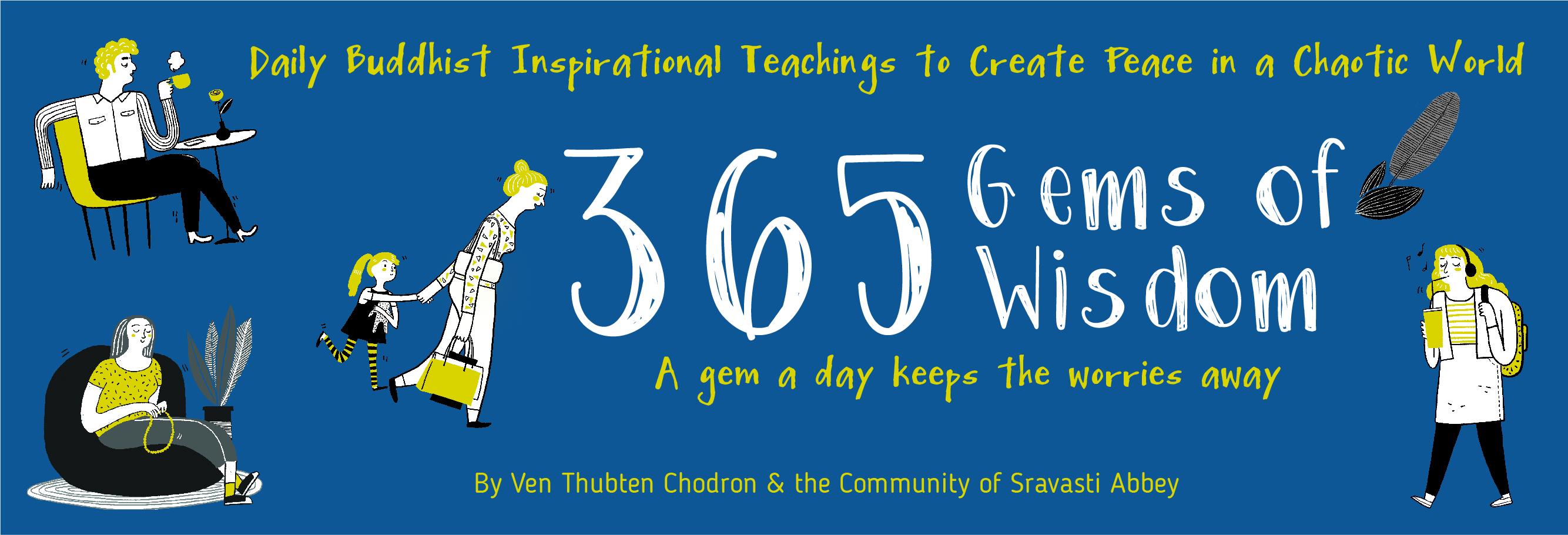November 12 : Counteracting Negativities
What should we do when we have been doing something we know is not so good, but part of us does not want to stop? It is amazing how we can rationalise our behaviour in such a way that it appears neutral or even good. It is that kind of mind that makes us feel that the precepts are imposed from outside and the kind of mind that makes us feel guilty because we are not in harmony with ourselves. At times like these, we need to really look inside of ourselves and draw on our wisdom by asking, “The Buddha was omniscient, so why did he say this is something to be abandoned?” Go into this question with a very open, spacious mind, and not one that is already feeling guilty and self-critical. Then we can reflect on how we feel about ourselves after we do the behavior and how we relate to other people. We should look at the long-term effect of the behaviour on the bodies and minds of ourselves and others within the context of this life.
In my work with inmates, the big “ah-ha” moment for them is realising, “My actions have results on other people and on me, in the short-term and the longterm.” We on the outside are probably glad these inmates finally recognised that their actions have harmful results, but how much do we look at the effects of our bad actions? Our motivations are also important because even actions that do not cause physical harm can harm us mentally by increasing our cravings, anger, laziness, resentment, etc. A sign that our good motivations are not so good is when we do not feel at ease inside.
The next thing we can do is look at the kind of karma we are creating for our future lives. Our motivation is the chief factor that determines whether our karma is virtuous, non-virtuous, or neutral, as well as its strength. We can ponder for a while and ask ourselves if we want to experience these results in a future life. We can also ask, “Is this behaviour conducive to liberation? Would I want the Buddha — the one whom I am taking refuge in, the one I trust more than anything else — to be doing this behaviour?” If our answer is “no,” we can conclude that the behaviour or thought pattern is not in alignment with our deepest spiritual yearning for liberation.
When we have the force of seeing the disadvantage of something through our wisdom, it becomes much easier to generate antidotes because our mind does not have all this rubbish about guilt and rebellion because somebody else is telling us what to do. Rather it is, “I want to be happy and respect my own spiritual goals, so I want to change.” We may not be able to let the behaviour go right away, but if we can stop justifying or rationalising the behaviour and start familiarising ourselves with our wisdom in daily meditation practice, our minds will change and start wanting to abandon the behaviour. This wisdom will also help us make a strong determination not to do the behaviour in the future.
“365 Gems of Wisdom” e-book is out now!

